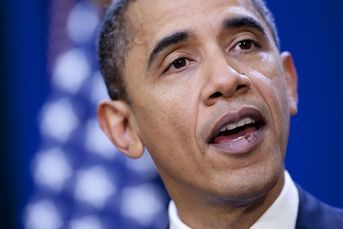SEC’s left hand doesn’t know what its right hand is doing
SEC Chairman Mary Schapiro must be dealing with some restless nights lately, because she is overseeing an agency that appears to be asleep at the switch.
SEC Chairman Mary Schapiro must be dealing with some restless nights lately, because she is overseeing an agency that appears to be asleep at the switch.
The Securities and Exchange Commission was dealt yet another blow to its credibility when its own inspector general, David Kotz, released a scathing report last week finding that the agency completely bungled three examinations and two investigations of Bernie Madoff’s investment firm.
This comes to light just a few weeks after U.S. District Judge Jed Rakoff held the SEC’s feet to the fire when he challenged the $33 million settlement worked out between the agency and Bank of America Corp. He rightly questioned the SEC’s resolution policies.
In the latest development, Mr. Kotz’s report paints a grim picture of the SEC as an agency crippled by incompetence.
It is not really news that the SEC messed up big-time on the Bernie Madoff affair. However, the damaging report drives home the extent of that failure.
The report details a series of botched investigations going back to 1992 in which inexperienced and unsophisticated agency examiners repeatedly failed to take seemingly obvious steps that would have uncovered Mr. Madoff’s massive Ponzi scheme. It also showed how he worked the room to confuse and intimidate these clueless SEC examiners to keep them away from the truth.
The agency’s biggest mistake, the report concludes, was that examiners never verified Mr. Madoff’s trading through an independent third party.
He at one point told examiners that trades were cleared through his account at the Depository Trust and Clearing Corp., and he then gave the examiners his DTCC account number. At that point, Mr. Madoff explained to Mr. Kotz in an interview for the report, “I thought it was the end game, over. Monday morning, they’ll call [the DTCC], and this will be over.”
The SEC examiners, however, never followed up with the DTCC. Mr. Madoff said he was nothing short of “astonished.”
The report explains that the SEC’s efforts were so uncoordinated that two Madoff examinations were going on simultaneously, though participants in one were unaware of the other.
It was Mr. Madoff himself who informed one team of the other’s existence.
“The SEC fumbled five probes of Bernard Madoff’s operations and missed opportunities to uncover the financier’s $65 billion investment fraud,” the report concluded.
That is a sad state of affairs, because the SEC’s mission is to protect investors, maintain fair, orderly and efficient markets and facilitate capital formation.
These latest developments have called into question whether the SEC is up to the task of carrying out its responsibilities.
The report stated that the SEC received more-than-ample information over the years to warrant a comprehensive investigation of Mr. Madoff and his firm. But despite three examinations and two investigations, no thorough probe was ever performed, Mr. Kotz said in his report.
Operating in damage control mode, Ms. Schapiro said the findings in the report “reinforce” her view that changes the agency has undertaken since the Madoff scandal broke will improve its ability to detect fraud.
It was a “failure that we continue to regret, and one that has led us to reform in many ways how we regulate markets and protect investors,” she said.
Investors cannot feel like they are being protected when it is evident that the SEC’s left hand does not know what its right hand is doing.
Jim Pavia is the editor of InvestmentNews.
Learn more about reprints and licensing for this article.





